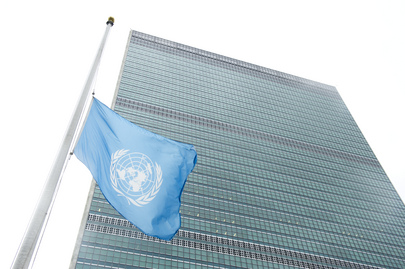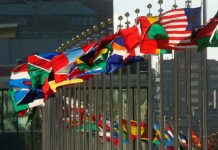At least eight people are feared dead and 22 others are missing after smugglers stopped a boat carrying around 150 passengers likely bound for Yemen on 5 June.
“These young people were forced into impossible choices by smugglers who show no regard for human life,” said Celestine Frantz, the UN migration agency’s Regional Director for the East, Horn and Southern Africa. “We are doing everything we can to support the survivors and prevent further loss along this deadly route.”
Rescue mission
Search and rescue operations supported by the International Organization for Migration, IOM, have recovered five bodies from the sea near Moulhoulé in northern Djibouti. The confirmed death toll stands at eight but this is expected to rise as search efforts continue.
IOM said that in the days following the incident, many of those rescued were found in the desert by the UN agency’s mobile patrols. They are now receiving urgent medical care at a local hospital and psychosocial support at the IOM-run Migrant Response Center in Obock, Djibouti.
Thousands of migrants from the Horn of Africa risk their lives every year to reach the Gulf States via Yemen where they hope to find work.
“This latest tragedy is part of a series of fatal maritime incidents off the coast of Djibouti, underscoring the urgent need for stronger protection mechanisms for migrants along the migration route between the Horn of Africa and Yemen,” IOM said.
Warning that this latest deadly incident is part of a growing crisis, the UN agency has called for increased international support to strengthen search and rescue operations and expand access to safe migration pathways.
Libya focus
In a related development, IOM reported on Tuesday that the bodies of 10 migrants had washed ashore near Marsa Matrouh in Egypt.
The dead are believed to have set sail from the Libyan coast which is often used by people smugglers to traffic migrants across the Mediterranean Sea to Europe.
More than 32,000 people are known to have drowned in the Mediterranean Sea since 2014 “with an unknown number still missing”, IOM’s Missing Migrants Project said.
Source of original article: United Nations (news.un.org). Photo credit: UN. The content of this article does not necessarily reflect the views or opinion of Global Diaspora News (www.globaldiasporanews.com).
To submit your press release: (https://www.globaldiasporanews.com/pr).
To advertise on Global Diaspora News: (www.globaldiasporanews.com/ads).
Sign up to Global Diaspora News newsletter (https://www.globaldiasporanews.com/newsletter/) to start receiving updates and opportunities directly in your email inbox for free.
































